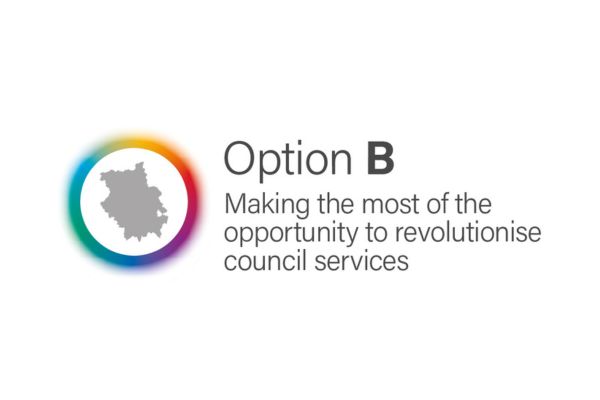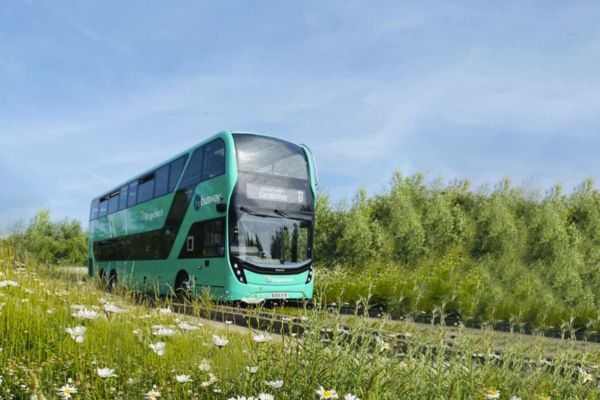Our Included programme builds a framework for clear pathways to fulfilling careers in Cambridge, from early years to early adulthood.
It’s designed for young people from disadvantaged backgrounds, including those not in education, employment or training (‘neet’).
The programme aims to make sure every young person in Cambridge, no matter their background, gets real chances to explore careers, meet supportive people, and build confidence in their future. By linking schools, families and employers to existing programmes of support, we open doors that are too often closed and grow the diverse local talent our city needs.
Included will bring together and extend existing programmes to create the pathway. The aim is to create a stronger system by bringing people and organisations together for progressive and cumulative impact. Where we identify gaps and opportunities, we will work to test new approaches, learn together and access funding to support our collective ambitions.
Get involved
Included aims to bring people together under a shared mission.
The team have had many offers of support already and are keen to hear from anyone who would like to get involved or share their work.
Please contact us if you can help or would like to find out more:
- included@cambridge.gov.uk
- 07720 145018
Take our practitioner survey
Our practitioner survey will gather a picture of what providers are already doing to support children and young people on their journey toward their career.
Please take our survey to help us map and understand what is already being provided and help shape the Included framework.
How it works
Each stage in the pathway will be built on pillars of support which give opportunities to children and young people. It will give them chances to learn new skills, meet people in different careers and take part in practical experiences. These will include projects, workplace visits and internships that will open their horizons and build self-belief.
- What you know teaches invention skills including design thinking, prototyping, storytelling and creative problem-solving.
- Who you know connects young people with mentors, employers and inspirational figures.
- How you think shifts perceptions of who “gets to” be an inventor; building confidence and agency.
- What you do embeds hands-on opportunities to design, make and test ideas.
- Pathways to jobs creates exposure to real-world sectors, jobs, and entrepreneurship routes.
- Who supports you engages families and communities to reinforce learning and aspiration.
It will see everyone in Cambridge – employers, founders, educators – contribute by opening up their workplaces, offering mentoring and providing real tasks for young people to try, alongside the great examples of programmes in the region which are already being delivered.
Schools and colleges fit these opportunities into learning, while families, carers and community and voluntary sector groups give encouragement, make connections and help young people stay involved.
The Included pathway will be clearly set out, so that young people know what to expect and can access these opportunities. The aim is to make sure support is early, preventative and doesn’t fall away as children grow older, and that this support creates a stronger local workforce by helping young people move steadily towards meaningful careers.
Example pathway
This high-level example is designed to illustrate the concept – the detailed programme will be developed with input from young people, employers, stakeholders and groups and organisations supporting young people.
Age 3 to 7
Children are introduced to curiosity, problem-solving and role models in their community. Example activities include:
- story sessions with themes about different jobs
- visits from community workers
- simple making and science play
Age 7 to 11
Pupils try practical projects and start to connect learning with the wider world. Example activities include:
- team challenges in class
- after-school clubs including coding, robotics and arts
- trips to local workplaces
Age 11 to 14
Young people explore different career areas and practise working in teams. Example activities include:
- employer-set design challenges
- mentoring from older students or volunteers
- hackathons or social action projects
Age 14 to 16
Young people test ideas in more structured ways and begin preparing for next steps. Example activities include:
- work experience placements
- employer panels
- apprenticeship taster sessions
- enterprise projects
Age 16 to 18
Students take part in hands-on experiences linked to real careers. Example activities include:
- research placements
- internships
- coaching for applications and interviews
- workplace visits tied to subject choices
Age 18 to 25
Young people transition into work or further study with ongoing support. Example activities include:
- paid internships
- mentoring from professionals
- entrepreneurship programmes
- peer networks at local hubs
Background
Following a report into inclusive innovation in Cambridge, leaders from across the city met to begin a process to help ensure opportunity is extended to local people all across the city as its economy grows. They represented civil society, academia, the business community, local government and more, and included young people.
There was a recognition that, while a lot of impactful work is currently happening across the city to address inequality, the sum is often less than the parts. There was a strong desire from all attendees to collaborate in the wider interest and make the most of this moment for the city.
Young people talked about the importance of creating an easy-to-follow pathway that engages and equips young people for their future, so that everyone can fulfil their potential in our growing city and feels that opportunity is open to them regardless of background.
The wide-ranging discussion reached an agreement to adopt a mission-based approach, starting with this focus on creating opportunities for young people.
Current progress
A follow-up meeting will take place in November, so there will be a clear proposition for delivery against the mission in early 2026. Before then, work to support young people and families will continue.
Key workstreams include:
- young people’s engagement
- practitioner survey, system mapping and gap analysis
- employer engagement
- governance, partnership and funding development
Programme management
While the project is being set up, Included is guided by a development board and the members that attended the first meeting.
It is being project managed by staff from Cambridge City Council and Greater Cambridge Impact. They are also working on options for future governance and funding for the programme as moves into the pilot phase in 2026.



